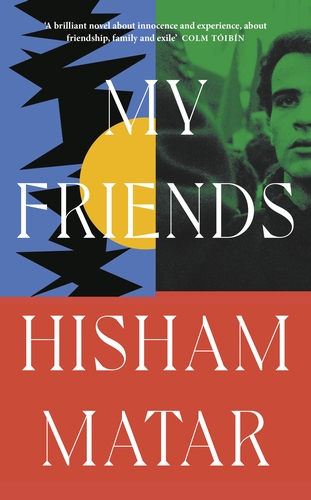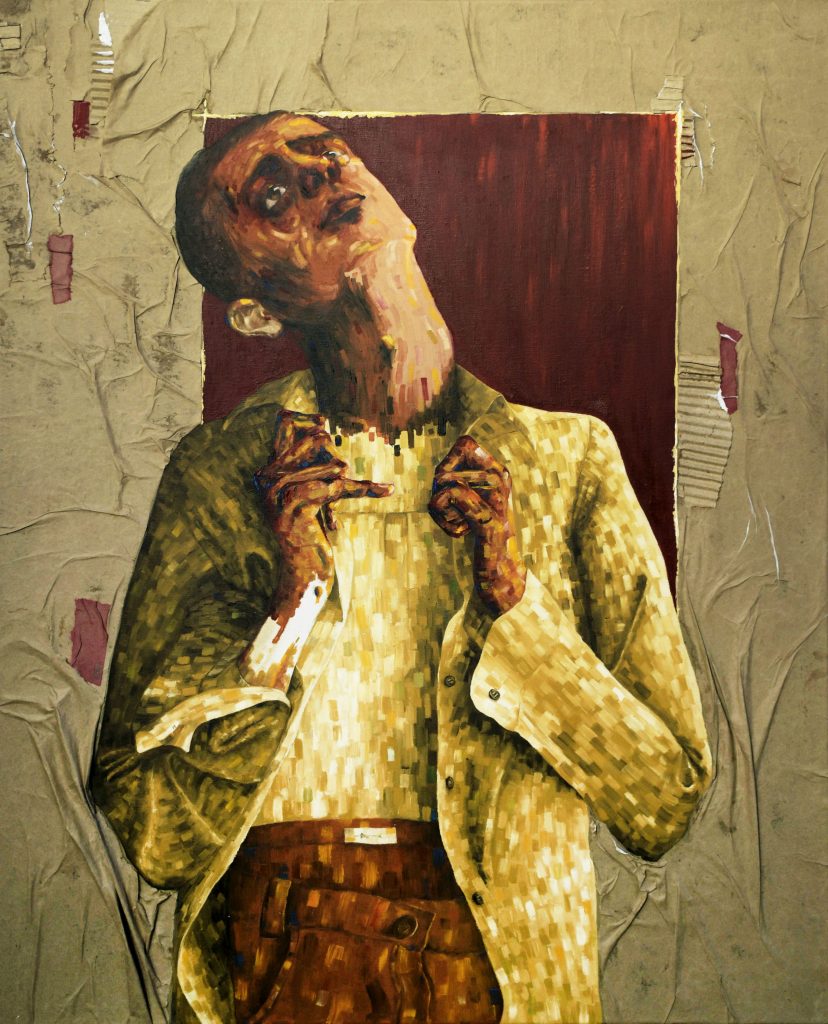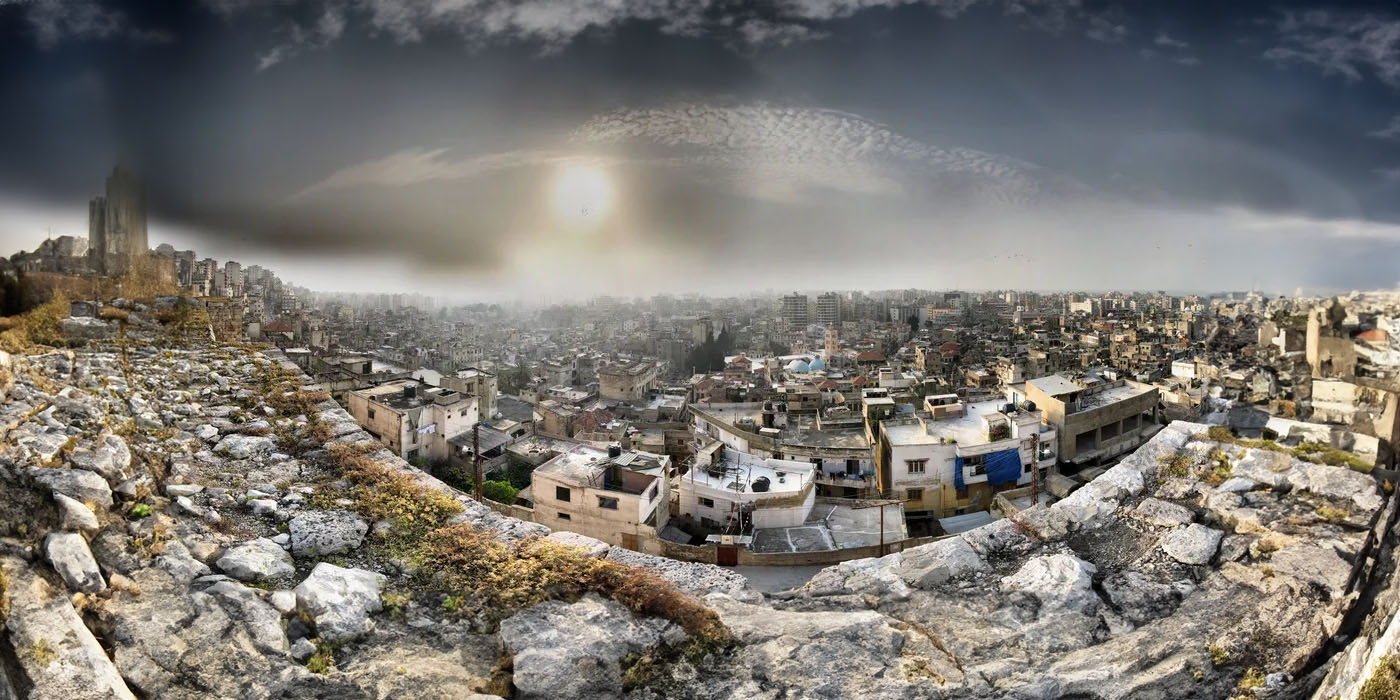In My Friends, the author revisits some of the same concerns of his previous works — namely, dictatorship and its violent tools of oppression, and the harshness of exile.
My Friends by Hisham Matar
Random House, 2023
ISBN 9780812994841
Adib Rahhal
“And perhaps this is the natural way of things, that when a friendship comes to an inexplicable end or wanes or simply dissolves into nothing, the change that we experience at that moment seems inevitable.” Thus reflects the narrator of Hisham Matar’s latest novel, My Friends, in the opening lines. A recurring theme throughout the story is the melancholy thought that, though we might try to convince ourselves otherwise, we are to a certain extent forever strangers both to ourselves and to those dearest to us. Khaled Abd al Hady, the narrator, is especially conflicted by this reality. The circumstances of his life, shaped largely by Gaddafi’s reign in Khaled’s native Libya, serve only to exacerbate his inner turmoil. Though My Friends is heavy on politics, its scope is far larger than that. The oftentimes unsettled and even dissonant aspect of one’s inner self is addressed in the context of dictatorship and revolution, with the question of how this might impinge on one’s decision-making closely and rewardingly examined.

The novel spans approximately three decades, from the mid-1980s to the years following Gaddafi’s fall in 2011. It juxtaposes the political upheavals of Libya with the shaping of the narrator’s psyche in London, to which Khaled moves in 1984. Khaled’s original plan is to spend only a day in London; he is going to attend a protest with a friend at the Libyan embassy before returning to Scotland, to which he moved seven months earlier from Libya as an exile. Matters take a most unexpected turn, however, and he ends up staying for good. In London, Khaled forms close friendships with two fellow Libyans, Mustafa and Hosam, as well as Rana, a Lebanese student at his college. Rana plays a lesser role in his life than that of his other two friends, but an important one nonetheless, and she inadvertently serves as the catalyst to his meeting Hosam.
Over the years, the friendship between Khaled, Mustafa, and Hosam is tested. Often, this is due to Libya-related events. That protest at the Libyan embassy turns horribly violent, resulting in serious injury to Khaled. Aside from the lingering psychological trauma, the physical scars remain, as does the difficulty in explaining them:
I had some lovers. Nothing ever lasted long. When we were finally in bed and before the clothes came off, I made sure the lamp was out. If her hand lingered on the scar, or the indentation in my back, and the questions came, I reached for the lie Rana suggested when we were in the sea together: “A car accident when I was a child.”
There is also the lingering unspoken notion that had Mustafa not suggested they attend the protest at the embassy, none of this would have happened, and that therefore he is in a sense to blame. On their way to the demonstration, the two friends have trouble locating the embassy, and Khaled almost wishes they fail to make it on time: “I became hopeful. Maybe we would never find it, or would get there after the fact. I imagined us years later recounting how we had had the right intentions but, because of our poor knowledge of the city, had lost our way.” Needless to say, they find their bearings, and what happens changes their lives momentously and permanently.
The onset of the revolution in Libya years later, in 2011, brings with it a time of reckoning for the three friends, and it is at this point that their paths diverge. Mustafa and Hosam decide to join the uprising and help oust Gaddafi. Khaled, however, opts to stay in London. To him, it is nothing short of miraculous that, despite what happened at that fateful demonstration, he subsequently managed to forge a life with a semblance of normality, including a loving relationship with Hannah, a kindred spirit he met in a college poetry class. Moreover, Khaled seems to have a visceral sense that, were he to participate in the carnage unfolding in his country, it would forever damage him:“ I fear if I leave I will not have the will to return and then I will be lost again and I have been lost before and will do everything not to be that again and […] I do not know if it is cowardly or courageous and I do not care and I have decided without deciding.”

Can Khaled be blamed for his reluctance to give up his relative tranquility, to leave the gentle quietude of his life behind in pursuit of an ideal? His friend Mustafa insinuates as much. “I don’t understand you,” he tells Khaled. “You just carry on as though nothing has happened.” And then he adds: “Your country needs you.” Hosam, however, believes otherwise. He seems to have a more profound understanding of Khaled’s psyche, of his ardent humanism and abhorrence of bloodshed. He understands that there are those who are not built for violence, and that Khaled is one such person. “The thing about war is that if you are in it long enough, it hardens your heart,” Hosam acknowledges.
As with all of Matar’s fiction, and knowing what we know about the author’s life, this novel seems to include elements of autobiography. It is worth taking a look at his previous work, for one finds certain common denominators across his oeuvre. In The Country of Men, his debut novel, focuses on the impact of the brutal Gaddafi dictatorship on nine-year old narrator Suleiman and his family and friends, and the extreme and chronic sense of unease that living in a climate permeated with distrust, paranoia, and fear has on the general population of the country. Anyone could be an informer; the resulting atmosphere of terror corrupts society. In Anatomy of a Disappearance, the central theme is the abduction of young narrator Nuri’s father, paralleling the author’s own experience. In both cases, the father’s fate remains unknown. During the course of the story, Nuri is asked what he thinks happened to his father. “I did not know how to answer,” he replies. “The truth is, I don’t believe Father is dead. But I don’t believe he is alive either.” The Return is a memoir; Matar goes back to Libya post-Gaddafi in search of answers regarding the fate of his father, who is always present, always absent. At one point, the author laments, “Eventually, the original loss, the point of departure, the point from which life changed irrevocably, comes to resemble a living presence, having its own force and temperament.”
In My Friends, the author revisits some of these same concerns — namely, dictatorship and its violent tools of oppression, and the harshness of exile. The perspective is a little different this time, but also, and crucially, we see how it is shaped at least in part by Khaled’s deep connections with the friends he makes in London. Their impact on his understanding of the world is quite pronounced. Also, the lives of the three friends are indelibly marked by what is happening in their country, albeit in different ways. “We are in a tide,” Hosam announces in the early days of the Arab Spring, “in it and of it. As foolish to think we are free of history as it would be of gravity.”
A Month in Siena, the nonfiction book directly preceding My Friends and perhaps Matar’s most personal and philosophical work to date, seemingly has little to do with Libya, yet is accented by what has transpired there and how it has affected the author’s life. Matar spends a month in the Italian city of the title, visiting museums and observing paintings for hours on end. He allows these paintings to act both as a balm for his grief over the unknown fate of his beloved father and as a means of reflecting on the nature of the human condition more broadly. The book is also about appreciating the finer things in our fragile and precarious lives; great misfortune can (should?) make us more attuned to the poetry of existence. This resembles the conclusion that the narrator in My Friends reaches, and it is also where he finds himself parting ways with Mustafa and Hosam on multiple levels.
How many blows can an intrinsic harmony between the closest of friends withstand before faultlines start appearing? Matar doesn’t provide us with a conclusive answer; it is left to the reader to draw her own inferences. Ultimately, the three friends here choose those paths they believe are conducive to their individual well-being. Their core identities turn out to be not as compatible with one another as they initially presumed, though the bond between them remains deep, something akin to love. Again, we return to one of Matar’s motifs in My Friends, which is that, tragically, it is the echoing inability to ever truly know what lies in the hearts of those we love that might lead to our devastating separation from them.
Like all fine literature, My Friends is significantly more than the subject it purports to be about. The novel meanders through the intricacies of the ever-restless minds of its characters, and allows the reader to consider the nature and precariousness of our existence, with all its frailties and uncertainties, its sublimities and dreaminess, from multiple angles, using the saga of Libya as a springboard for these reflections. The disquietude that surrounds Khaled’s world is alleviated by the potential for momentary transcendence. “Hosam told me that he believed that the most important human dramas take place not on battlefields but in the quiet hours,” Khaled muses.
Matar seems to suggest that, precisely because of our tragic predicament as sentient beings in an indifferent world, it would be a shame to forgo the beauty of those quiet hours — wherever and however we might find them, whether through poetry and the arts or something as simple yet deeply rewarding as having a conversation with a friend over coffee. Friendship is almost sacred to Khaled, who is otherwise fiercely secular. As Hosam puts it when he and Khaled are still getting to know one another: “Friend. What a word. Most use it about those they hardly know. When it is a wondrous thing.”




